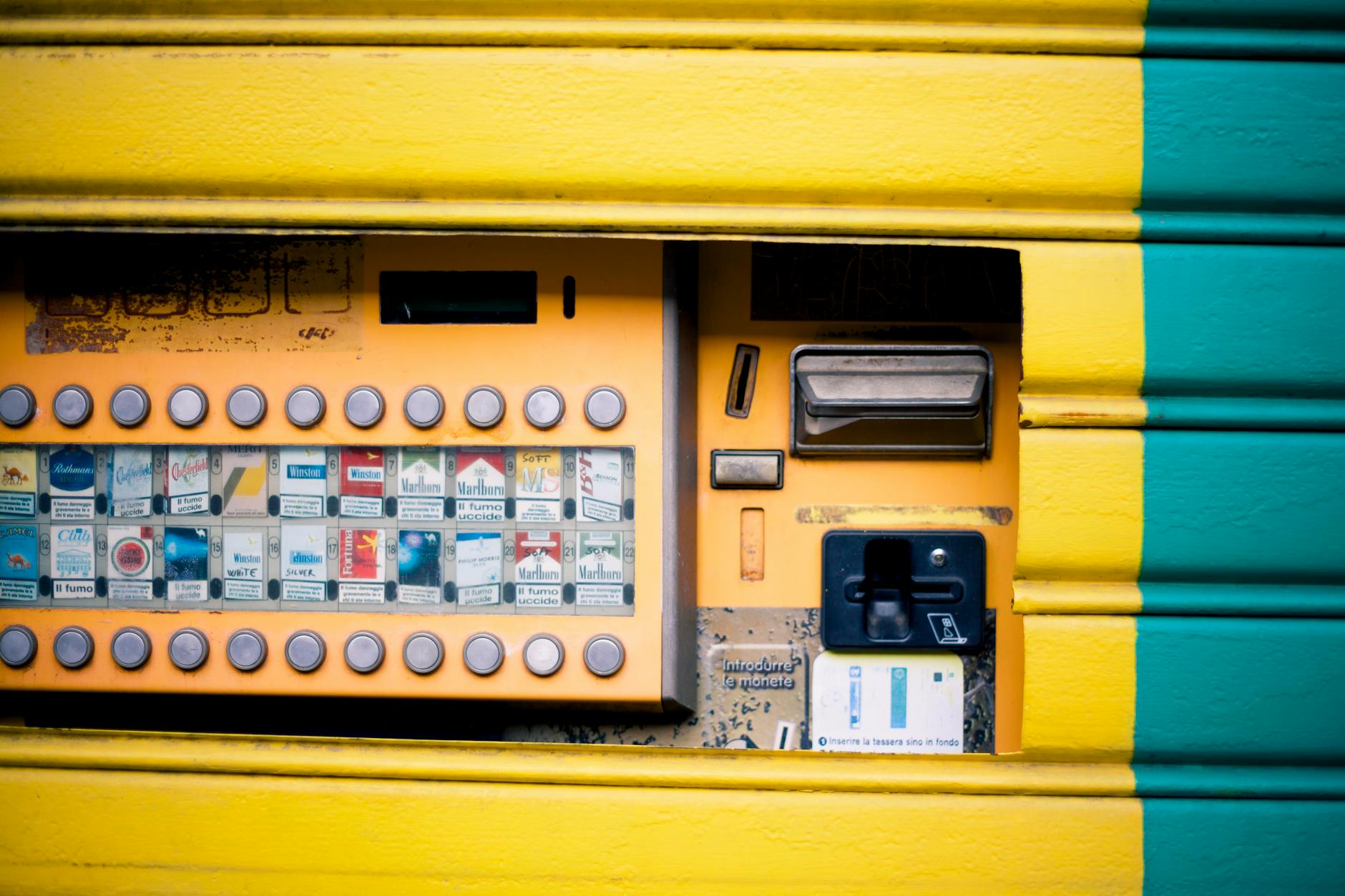
The vending machine industry is a lucrative and flexible business opportunity that has been steadily growing across the United States. Whether it’s snacks, drinks, or even specialty items like electronics or beauty products, vending machines are a popular way to deliver convenience to consumers. If you’ve been wondering how to start a vending machine business, this detailed guide will walk you through every step, making it easier for beginners to grasp the intricacies of the industry. From selecting the right vending machines to finding profitable locations and marketing your business, we’ll cover it all.
Table of Contents
Why Start a Vending Machine Business?
Starting a vending machine business in the U.S. offers numerous benefits. For one, it requires relatively low startup costs compared to other types of businesses. It’s a flexible venture where you can scale operations according to your budget and goals. The demand for vending machines is consistently high, with businesses, schools, gyms, and hospitals all relying on them for convenience. Additionally, this business can operate 24/7, generating passive income while you focus on other tasks.
Let’s dive into the details of how to start a vending machine business.
Step 1: Research the Vending Machine Industry
Before launching your business, it’s essential to research the vending machine industry. Understanding the market trends, competition, and customer preferences will give you a clear roadmap for how to start a vending machine business.
Analyze Market Trends
The vending machine industry in the U.S. is valued at approximately $7 billion and continues to grow with innovations like smart vending machines and healthy snack options. Research which products are in high demand, such as healthier snacks, energy drinks, or niche items like CBD products or personal protective equipment (PPE). Keeping up with industry trends can help you identify unique opportunities.
Understand Your Competition
Take time to study competitors in your area. Visit locations where vending machines are prevalent and observe what they offer. Look for gaps in the market, such as underserved locations or product categories that could be improved. For example, if you notice most machines in gyms offer sugary drinks, you could focus on providing protein shakes or electrolyte beverages.
Choose a Vending Machine Niche
Selecting a niche is a critical step in how to start a vending machine business. Your niche determines the type of products you’ll sell and the locations you’ll target. Common niches include:
- Snacks and Beverages: The most traditional and popular category.
- Healthy Vending Machines: Catering to health-conscious customers with options like granola bars, fresh fruit, and organic drinks.
- Specialty Products: Items like electronics, beauty supplies, or PPE for specific locations like airports or gyms.
- Coffee Machines: Ideal for office buildings and waiting areas.
Step 2: Develop a Business Plan
A solid business plan is the foundation of how to start a vending machine business. It helps you outline your goals, estimate costs, and plan your operations.
Key Elements of Your Business Plan
- Executive Summary: A brief overview of your business goals and vision.
- Market Analysis: Research findings about customer demand and competition.
- Business Model: Specify whether you’ll own the machines outright or lease them.
- Operations Plan: Details about maintenance, restocking schedules, and suppliers.
- Financial Projections: Estimated startup costs, revenue, and profitability timelines.
Estimate Startup Costs
Starting a vending machine business in the U.S. typically costs between $3,000 and $10,000 per machine, depending on the type of machine and the products you offer. Costs to consider include:
- Vending Machines: Basic machines cost $1,500–$3,000, while advanced models with smart features can cost $5,000 or more.
- Initial Inventory: Budget $500–$1,000 to stock your machines.
- Licenses and Permits: Costs vary by state, but budget around $200–$300.
- Insurance: Liability and property insurance will cost approximately $500–$1,000 annually.
For funding, consider small business loans, personal savings, or even partnerships.
Also Read: How to Start a Courier Business
Step 3: Register Your Business and Obtain Licenses
Once your plan is in place, the next step in how to start a vending machine business is to register your business and comply with legal requirements.
Choose a Business Structure
Common business structures for vending machine businesses include sole proprietorships, LLCs, and corporations. Many entrepreneurs prefer forming an LLC because it offers liability protection while being relatively simple to set up.
Register with State and Federal Authorities
You’ll need to register your business name with your state and apply for an Employer Identification Number (EIN) through the IRS. This number is required for tax purposes and hiring employees.
Acquire Necessary Permits
Vending machine businesses require specific permits and licenses. These vary by state but typically include:
- Business License: Required to operate legally in your state or city.
- Health Permit: Necessary if you’re selling food or beverages.
- Sales Tax Permit: Allows you to collect sales tax on your products.
Visit your state’s official business website or consult the Small Business Administration (SBA) for specific requirements.
Step 4: Purchase Vending Machines
Selecting the right vending machines is a crucial step in how to start a vending machine business.
Types of Vending Machines
- Traditional Machines: Dispense snacks and beverages.
- Combo Machines: Offer both snacks and drinks, saving space and investment.
- Specialty Machines: Designed for specific products like coffee, ice cream, or electronics.
- Smart Vending Machines: Equipped with touchscreens, cashless payment options, and real-time inventory tracking.
Where to Buy Vending Machines
You can purchase vending machines from manufacturers, wholesalers, or second-hand sellers. Some popular options include:
- Vending.com
- eVending
- Craigslist for used machines
Always ensure the machines are in good working condition and offer warranties.
Step 5: Find Profitable Locations
Location is everything in the vending machine business. High-traffic areas with consistent footfall are ideal.
Ideal Locations
- Office Buildings: Cater to employees during breaks.
- Schools and Colleges: Offer snacks and drinks for students.
- Gyms and Fitness Centers: Provide health-focused products.
- Hospitals and Clinics: Stock refreshments for staff and visitors.
- Transportation Hubs: Airports, train stations, and bus terminals.
Securing a Location
To secure a location, reach out to property owners or managers and present your business proposal. Highlight the benefits of having a vending machine on their premises, such as added convenience for customers or employees and potential revenue sharing.
Step 6: Stock and Maintain Your Machines
Proper inventory management and maintenance are essential for maximizing profits.
Choose the Right Suppliers
Partner with wholesalers or distributors to purchase your inventory at competitive prices. Options include:
- Sam’s Club
- Costco
- Local distributors for specialty items
Maintenance and Restocking
Regular maintenance ensures your machines remain operational. Develop a restocking schedule based on demand, and keep track of inventory using vending management software.
Step 7: Market Your Vending Machine Business
Effective marketing helps attract new clients and build your brand.
Create an Online Presence
Develop a professional website that highlights your services and showcases your vending machine options. Use platforms like Squarespace or Wix to build your site.
Leverage Social Media
Share updates, customer testimonials, and promotions on platforms like Facebook and Instagram. Networking on LinkedIn can also help you secure new business locations.
Offer Incentives
Attract customers and location partners with incentives such as discounts, profit-sharing agreements, or free trials.
Conclusion
Starting a vending machine business is a rewarding venture that offers flexibility and passive income. By following these detailed steps on how to start a vending machine business, you can create a successful operation that caters to a wide range of customers. From choosing the right machines to finding profitable locations and maintaining a reliable inventory system, each step is crucial to your success.
FAQs
Q: How much money do I need to start a vending machine business?
A: Initial costs can range from $3,000 to $10,000 per machine, including inventory and permits.
Q: Do I need a license to operate vending machines?
A: Yes, most states require a business license and potentially a health permit for food and beverage items.
Q: How do I find the best locations for vending machines?
A: High-traffic areas like schools, offices, and gyms are ideal. Contact property managers to secure agreements.
Q: What types of vending machines are most profitable?
A: Snack and beverage machines are consistently profitable, but niche products like healthy snacks or specialty items can also perform well.
Q: Can I operate a vending machine business part-time?
A: Yes, it’s a flexible business that can be managed part-time, especially with route optimization and efficient restocking schedules.
With determination and a strategic approach, you can establish a thriving vending machine business that meets consumer needs and generates steady revenue.
